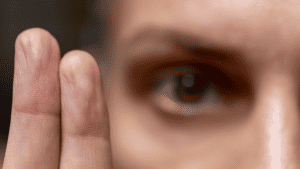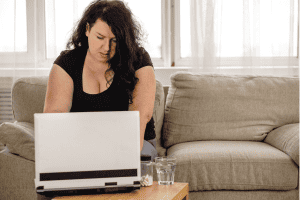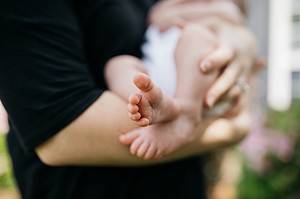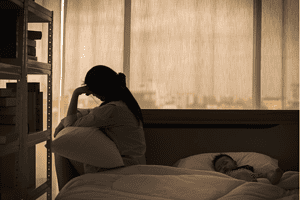5 ways birth trauma can impact relationships
It was January of 2015 when I received that text message from husband. It was so beautifully and gently written, so considered. In that message he told me that he was concerned about our relationship, and wanted more for us. He had noticed a shift in my behaviours over the previous months… an emotional disconnect, and a numbness. And he missed me. He missed out conversations, he missed our connection, and he missed our physcial touch. Reading it shook me to my core. He had articulated everything I was feeling, but I had no idea how it was impacting us and our relationship. As he pointed out, we had become ‘just friends’. But I felt I had no space for us. Almost no capacity to bring it back, and as much as I wanted it back, this way of being together felt lighter.
Birth trauma doesn’t only affect the person who directly experienced it. It can also have a significant impact on their intimate relationships.
The aftermath of birth trauma can create ripples across our lives, and sometimes these ripples remain for days, weeks, months or years. This can have an impact on many aspects of life, including our capacity to communicate effectively; to trust self, others and the world; and to be emotionally and physically available to our loved ones.
Knowing these impacts can help couples (and families) to understand when trauma is at play, and to access the support they need, because trauma is treatable, and you don’t have to feel like this forever.
In this post, we’ll explore five of the ways that relationships can be impacted by birth trauma, and what to do if this is your current experience.
What is birth trauma?
In my work as a specialist perinatal and birth trauma counsellor, birth trauma is an all-inclusive term.
Birth trauma can be experienced at any point, including conception, pregnancy, labour, birth, postpartum, parenting and loss.
Broadly speaking, traumatic events are marked by a sense of horror, hopelessness, intense fear, serious injury or threat of serious injury or death, as a result of a perceived or real threat.
Unfortunately, for 1 in 4 women, birth is marked by one or all of the above perceived or real experiences.
Trauma is less about what happens to us, or the specific event that has taken place. Instead, it’s about what happens inside us as a result of what’s happened to us on the outside – trauma is the internal response from our nervous system when it is overwhelmed by the perception of threat.
5 ways in which birth trauma can impact relationships
Research studies have confirmed what so many couples say – trauma has led to a decrease in relationship satisfaction, and impacted their expression of emotional, intimacy, and communication.
As you read through these challenges, please remember that trauma is treatable, and with support, these challenges don’t need to last forever.
1. Intimacy issues
Birth trauma can affect intimacy in a number of ways. Women who experience birth trauma may feel disconnected from their bodies, or experience physical and emotional pain that can make intimacy difficult.
Experiencing anxiety, depression, or feelings of shame and guilt also affects desire and intimacy.
For partners, there can be difficulty around intimacy following birth trauma, due to the feelings of helplessness, fear, terror or emotional numbness that often follow it.
A change in intimacy within the relationship can place a strain on couples and lead to feelings of confusion, frustration and rejection.
2. Breakdown of trust
If the individual who experienced birth trauma feels they were abandoned, or not adequately heard, supported or advocated for, this can lead to a breakdown of trust in those involved in their care, and other people around them – including their partner.
This breakdown of trust can lead to feelings of betrayal, resentment and disconnection.
3. Post-traumatic stress
Trauma responses can cause certain behaviours that can be difficult for loved ones to understand.
Symptoms like flashbacks, irritability, and hypervigilance can be challenging within relationships, especially if it’s not understood where these behaviours or experiences are stemming from (that they are a response to trauma).
For some people, birth trauma can lead to Post Traumatic Stress Disorder (PTSD). Some of the signs of PTSD include flashbacks, nightmares, anxiety, and avoidance of places, people, or experiences that remind the person of the traumatic event.
Understanding PTSD and its impacts can help you to feel more empathy and understanding towards your partner through this time, and to access the support needed to heal.
4. Disconnect
Feelings of physical and emotional disconnection are part of the body’s natural response to experiencing trauma. There may also be a feeling of disconnect from self and others, which can lead to challenges bonding with a partner (or your newborn).
Disconnection is one of the body’s short-term coping strategies, when our experiences are so painful that we don’t yet know how to process them. It can also arise in situations where one partner feels responsible for the birth trauma in some way, or where a couple are feeling that they can’t relate to each other’s experiences of the situation.
This can create challenges in communication and may lead to feelings of isolation and loneliness within the relationship.
5. Increased conflict
Increased conflict can happen after birth trauma, where one partner is experiencing trauma and the other is not. It can also arise when different coping styles lead to misunderstandings between a couple.
For example:
One partner is processing the experience by talking about their feelings and experiences. They want to process their emotions by talking them through with their partner, and to seek reassurance and validation from their partner.
At the same time, the other person is coping by trying to distract themselves from the trauma. They want to try and move on as quickly as possible, and they are avoiding talking about the experience. Because they feel that talking about the trauma will make it worse, they feel uncomfortable and overwhelmed by their partner’s emotional expression.
This can lead everyone to feel their needs are not being met.
What to do if birth trauma is impacting your relationship
These five areas are interrelated and can have a compounding effect on each other, making it difficult for couples to navigate through the aftermath of birth trauma.
By understanding these areas of impact, couples can seek the support they need to heal and to grow their relationship, together.
It took me three weeks from receiving that text message to finally make the decision to do something about it. Underneath, I wanted more for us too. I wanted what we had before we had our children. I saw a counsellor individually to work through my experiences of perinatal and childhood trauma, then we engaged in couples counselling. And honestly, it changed everything for us. It wasn’t easy… in fact it was incredibly confronting. But now, 8 years later, we are still implementing what we learned through that process and we are as solid and connected as ever before.
If you’re seeing some of these occurring in your relationship, please know there is support available. Experienced perinatal and trauma counsellors can provide a safe space to talk openly and honestly about your experience and your needs, and to provide therapeutic strategies to support trauma healing.
If you’re interested in counselling, you can learn more about individual counselling here, couples counselling here, or get in touch via the link below. I would love to support you and relationship too.
Fiona xo
Additional reading
Garthus-Niegel S, Horsch A, Handtke E, von Soest T, Ayers S, Weidner K, et al. The impact of postpartum posttraumatic stress and depression symptoms on couples’ relationship satisfaction: A population-based prospective study. Front Psychol. 2018;9(SEP):1–10.
Fiona Rogerson: Somatic vs Emotional Flashbacks: What’s the Difference















